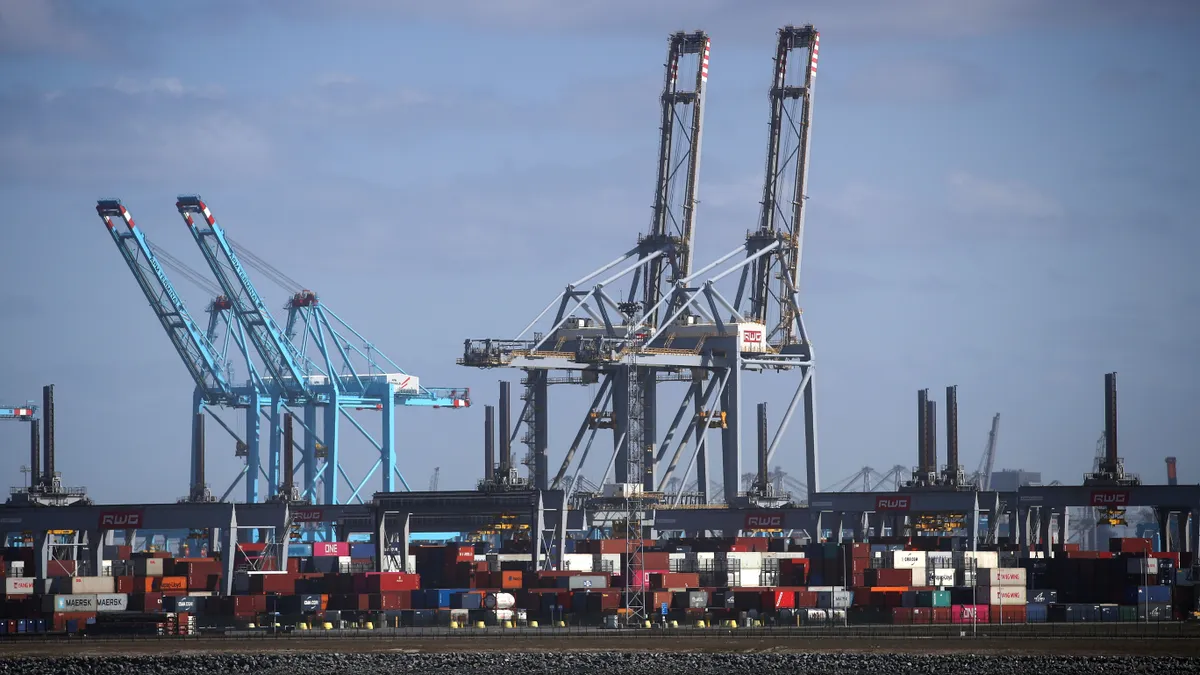Dive Brief:
- Ships that were held up by the blockage of the Suez Canal began arriving at ports this week, with more set to arrive over the coming week, according to a database set up by the Port of Rotterdam, the most recent operational update from the Port of Antwerp and data from project44. So far impacts have been minimal, but some say they could worsen in the coming days.
- An analysis by project44 found that Singapore and Rotterdam could see the biggest impact. Ships with 370,000 TEU are headed to Singapore, where 83 ships are already at port or at anchor. And vessels with 196,600 TEU of capacity are headed to Rotterdam, where 85 ships are at port or at anchor.
- "We expect the first ships that were stuck in the Suez Canal to arrive in Europe as of this week," a spokesperson for the Port of Antwerp said in an email Thursday. "Currently, the predicted traffic is not as bad as expected. As it looks now, it will be particularly busy in other ports in Europe. In Antwerp, the ships seem to arrive well spread."
Dive Insight:
The impacts of the Suez Canal blockage are expected to have a long tail. An advisory released last week by Maersk noted the carrier expects the fallout to last "well into May" as ship schedules are disrupted.
Hapag-Lloyd reported that it was already seeing some disruptions in its network with equipment shortages in Germany, Austria, Switzerland, Hungary and Czech Republic stemming from the Suez backlog, according to an advisory from the carrier.
Container xChange's container availability index remained above 0.5 for European ports this week, indicating that more containers are arriving than leaving. Antwerp did see a slight dip in this number compared to the previous week.
"In two to three weeks, we expect that number to spike up again, as all the ships that were waiting in front of the Suez Canal or are going around Africa right now will enter European ports," Florian Frese, the marketing lead for Container xChange, said at the end of last week.
Jan van Casteren, VP of Europe for Flexport, said this is unfolding at a time when equipment availability is already volatile, and that the Suez blockage will just make things worse in the coming weeks.
"This will impact the next two or three weeks drastically [for] the equipment availability on top of the current situation," Casteren said, noting that Flexport recommends shippers look into flexibility when it comes to equipment types.
This is also unfolding at a time when schedule reliability has been at record lows. Carriers had a global schedule reliability in February of just under 35%, according to Sea-Intelligence.
As ships' voyages are delayed due to the Suez Canal, one of the only tools that carriers have to manage schedules is through blank sailings, Casteren said, adding that the sailings will likely shift back a week.














